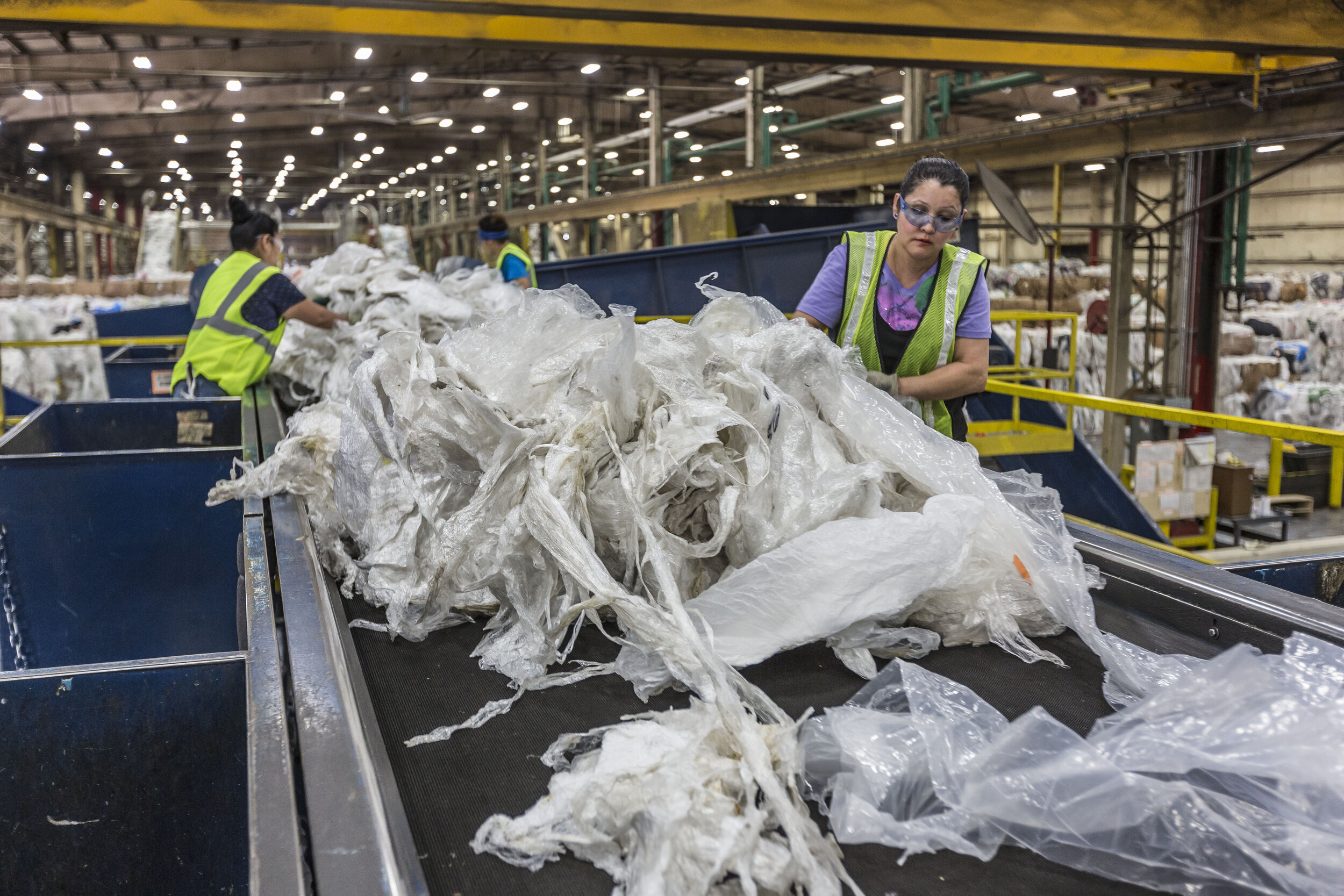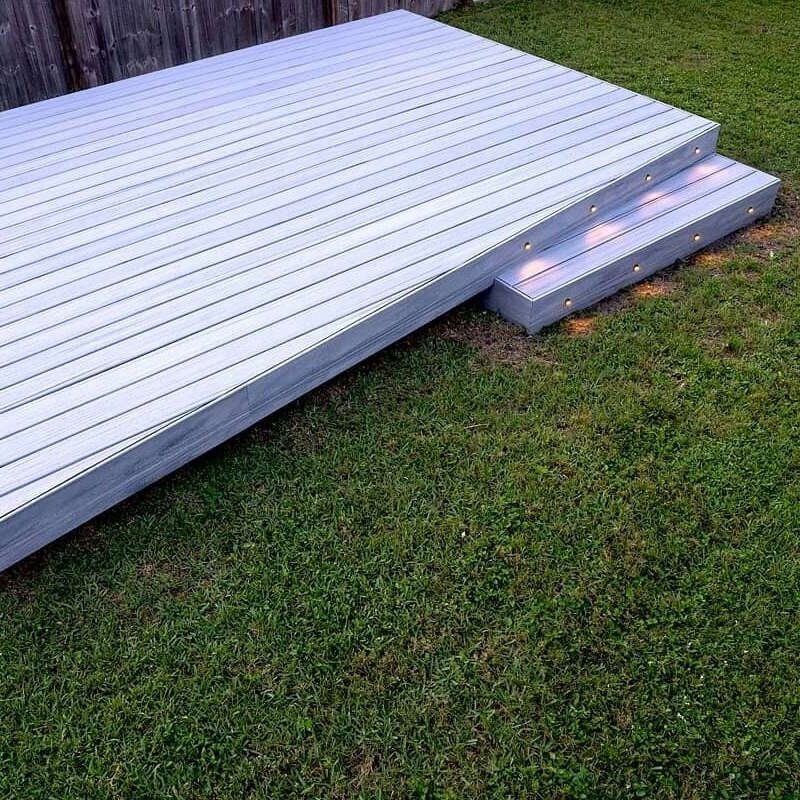Where does it go? Plastic Film Edition
Plastic film is a category that many Ridwell members tell us is their biggest source of waste. And it’s a tricky one! While most plastic films can be recycled, many cities (including Ridwell’s hometowns of Seattle and Portland) have decided to stop including them in curbside collection because of the damage they can cause to sorting machines.
Luckily, Ridwell is different. Our members presort plastic films and ensure we are only collecting materials that are free from contaminants like old food and moisture. Through our partnership with Trex Company, plastic film collected from Ridwell customers then not only stays out of the landfill, it goes on to a pretty amazing second life.
Trex is one of the largest recyclers of plastic film in North America, using more than 400 million pounds of recycled plastics - including more than 1.5 billion plastic bags - each year to make its high-performance, wood-alternative decking. A standard 16-foot Trex deck board contains recycled materials from approximately 2,250 plastic bags, and is 95% recycled content.
Nearly all of Trex’s recycled plastic film comes from post-consumer sources like Ridwell - the additional sources include distribution centers for food, auto parts, and consumer goods where large amounts of shrink wrap are removed from pallets.
Ridwell is part of the NexTrex™ Program, a recycling program that engages more than 30,000 retailers and distributors nationwide to repurpose the plastic waste they accumulate. “NexTrex is a prime example of an initiative where everybody wins,” explained Dave Heglas, senior director of supply chain excellence for Trex Company. “Our commercial partners like Ridwell win by providing their customers with an environmentally responsible way to dispose of plastic waste. Trex wins by collecting a key ingredient to make our products. And, ultimately, we all win by keeping tons of single-use and packaging plastic from ending up in landfills.”
Here’s how it works:
Step One: Collection
Ridwell members place plastic films in reusable cloth bags, which we pick up biweekly, direct from their doorsteps.
Step Two: Screening
Ridwell employees empty the fabric bags, check for any misplaced or dirty materials, and process the plastic film through our industrial baler.
Step Three: Bales!
The bales are prepared for transport and loaded onto a semi for shipping to Trex’s manufacturing facility in Nevada.
Step Four: Processing
At Trex, the plastic bales are unloaded and processed. The machines at Trex break the plastic film down into small pieces that are combined with recycled wood elements to create composite decking material.
Step Five: A new life
A beautiful new eco-friendly Trex deck, made possible by partnerships with companies like Ridwell and our wonderful members.
Partnerships with companies like Trex are what has enabled Ridwell members to save an incredible 1,000,000 pounds from the landfill - 800,000 pounds in 2020 alone. We are always happy to talk about our partners and where materials we collect go - you can reach us at help@ridwell.com.







